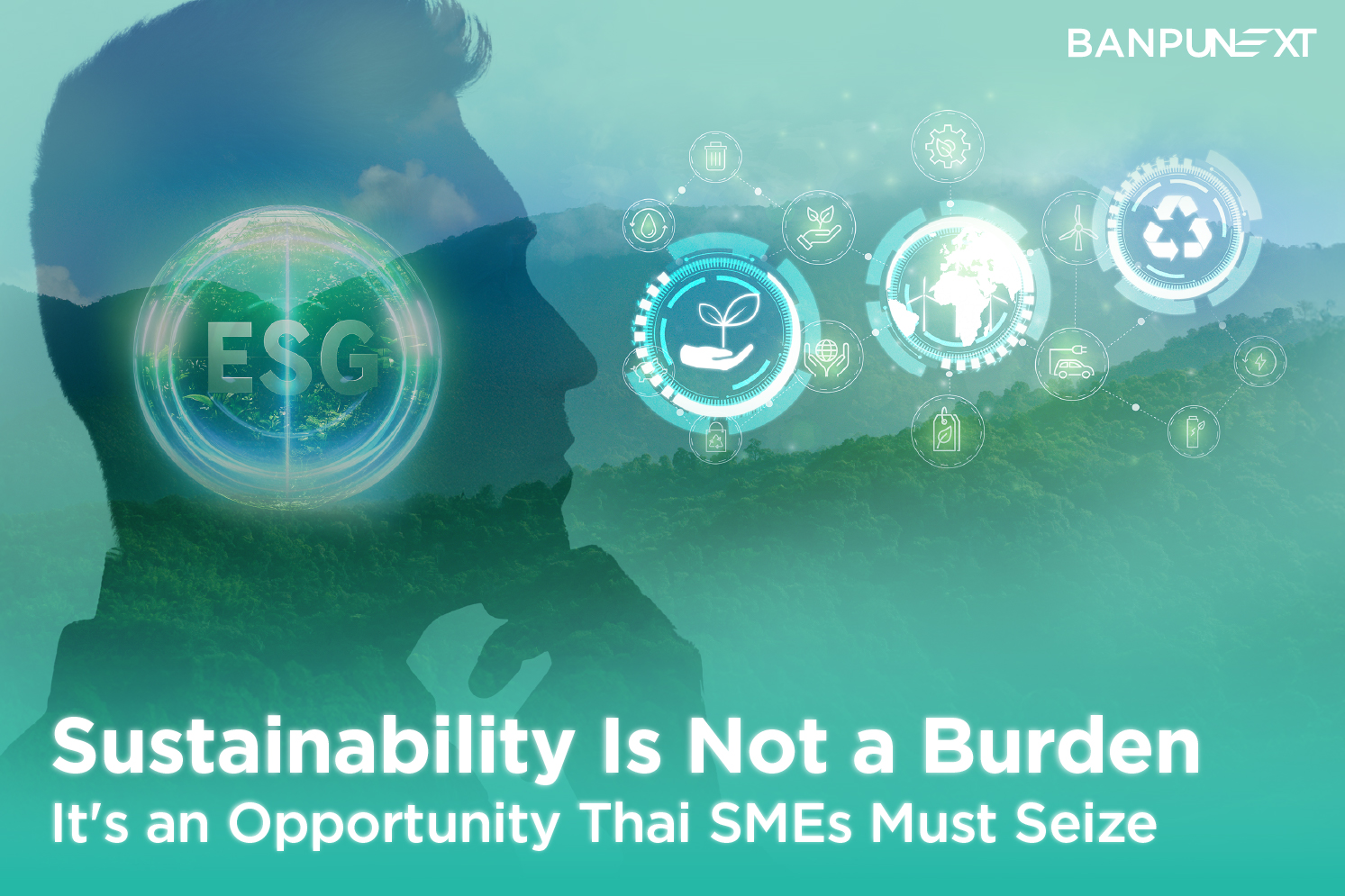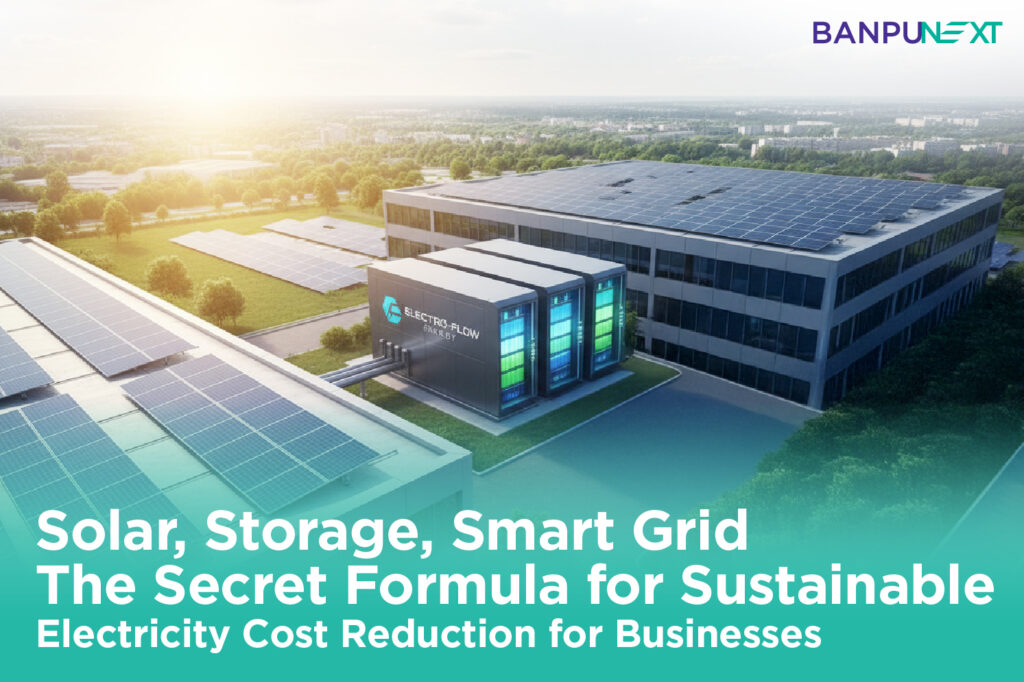Today’s business world is evolving rapidly. Competition is no longer defined solely by product quality or cost-efficiency—it’s increasingly measured by sustainability.
Rising pressure from environmentally conscious consumers and global trade partners, along with stricter ESG (Environmental, Social, and Governance) standards, mean that Thai SMEs can no longer afford to stand still. Building a sustainability framework is no longer a choice—it’s a strategic necessity. It is the key to remaining competitive and unlocking new opportunities in a business landscape that has permanently shifted.
What Is CBAM, and Why Should SMEs Care?
The Carbon Border Adjustment Mechanism (CBAM) is a carbon tax policy introduced by the European Union. It aims to place a price on carbon emissions associated with imported goods—particularly those from carbon-intensive sectors such as steel, aluminum, cement, fertilizers, and electricity.
For Thai SMEs, even those not exporting directly to Europe, CBAM can have indirect impacts. If they are part of the supply chain for exporters to the EU, they may soon face new requirements from their clients—such as calculating and reducing carbon footprints to help offset carbon-related costs.
Potential Impacts for SMEs:
- Corporate clients may require carbon footprint disclosures from suppliers.
- Carbon emissions documentation for production processes could become mandatory.
- Failure to comply may result in lost business opportunities.
Why SMEs Must Start Preparing Now
- Corporate Clients in Thailand Are Setting ESG Standards for their Suppliers
Large corporations and publicly listed companies are increasingly applying ESG criteria to their supply chains, especially those aiming to report Scope 3 emissions accurately.
SMEs that fail to align with these sustainability goals risk being excluded from procurement lists.
- Government, Private Sector, and Thai Consumers Are Increasingly Prioritizing Eco-Friendly Products and Services
Thailand is seeing a shift in consumer behavior and procurement policies. Government agencies are implementing Green Procurement strategies, while consumers are increasingly opting for products with eco-label certifications. This is a clear signal that the domestic market is changing.
- Many Industries in Thailand Are Raising Operational Standards to Align with Net Zero Goals
Sectors such as automotive, electronics, and chemicals are already adjusting their operations to earnestly support carbon reduction targets.
- Businesses That Fail to Adapt May Gradually Be Overlooked by Sustainability-Focused Clients and Partners
The lack of carbon footprint data or carbon reduction plans could become a competitive disadvantage in business negotiations.
- Proactive SMEs That Begin Building Sustainability Systems Now Can Stand Out to Corporate Buyers
On the flip side, SMEs that begin building sustainability systems today will stand out.
They’ll be seen as “preferred suppliers” to corporate clients seeking environmentally responsible partners—giving them a distinct edge in both domestic and regional markets.
How Can SMEs Begin Their Sustainability Journey?
The path to sustainability doesn’t have to start with complex or large-scale actions. For small and medium-sized enterprises (SMEs), it can begin with something as simple as understanding where they currently stand—such as conducting a basic carbon footprint assessment or preparing the right documentation to communicate with corporate partners.
These small steps can lay the foundation for long-term carbon reduction and gradually lead toward achieving Net Zero targets in a structured and achievable way.
Practical Steps SMEs Can Take to Get Started
1. Measure your carbon footprint to understand where emissions are coming from, how much is being generated, and which areas can be improved most easily.
2. Prepare essential documentation about energy usage, raw materials, and production processes to be ready for requests from business clients.
3. Reduce energy use by improving efficiency, minimizing waste in operations, and upgrading systems—this cuts both carbon emissions and operating costs.
4. Explore clean energy options such as installing solar panels or sourcing renewable electricity to reduce Scope 2 emissions.
5. Communicate progress clearly and consistently with clients and partners to build trust and position your brand as a responsible business.
Banpu NEXT: A Partner SMEs Can Rely On
At Banpu NEXT, we understand that SMEs need accessible and practical sustainability solutions. With our Net Zero Advisory services, specifically designed for SMEs, we help create strategic plans, provide tailored recommendations, and offer ongoing support along the journey toward a sustainable and carbon-neutral future.
Our SME-Focused Services :
- Carbon Footprint Calculation across Scopes 1, 2, and 3, using methods suited to your business size. We also identify high-impact areas for emission reduction.
- Net Zero Strategy Development aligned with your financial and operational capacity. We focus on solutions that are actionable, realistic, and deliver long-term returns.
- Support for ESG Reporting and disclosure to rating agencies such as FTSE Russell, CDP, MSCI, and S&P, including sustainability reports that meet global standards.
Investing in carbon measurement and reduction today is an investment in your business’s future. SMEs that prepare early will be better positioned to grow and gain a competitive edge in markets where success is no longer measured by product quality and price alone—but also by environmental responsibility.




